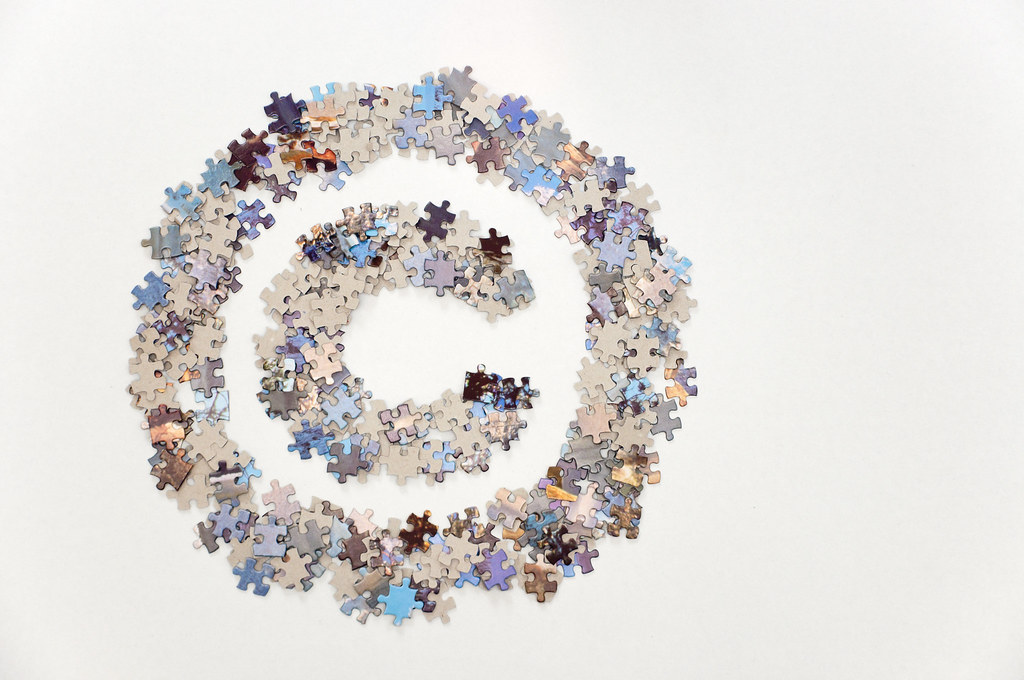How do I get a copyright? Do I have to register with the U.S. Copyright Office?
Image by Horia Varlan.
How to Get a Copyright
Getting a copyright might be easier than you think. No, you don’t have to go out and register your copyright. You don’t have to become a member of a special organization. There aren’t any fees you have to pay, either.
To get a copyright for your work:
- your work must be in a fixed tangible medium AND
- your work must be original
Yep, that’s all you have to do! Seems pretty simple, but what do we mean by a fixed in a tangible medium? What kind of work is considered original? We’re glad you asked…
Fixed Tangible Medium
Basically, the creative work has to be put into a permanent or stable material form to get copyright protection. A fixed work must be able to be perceived directly by someone, or with the aid of a device like a computer or television. So a fixed tangible medium can be a poem written down on a piece of paper, a screenplay stored on a computer’s hard drive, a movie stored on film, or a song recorded and saved as an mp3. Regardless of what the work is, it must be in a stable material form to get copyright protection. So, if you create a new dance with a bunch of cool hip hop moves you better videotape yourself doing the dance or you don’t have a copyright on the choreography! You can’t get a copyright on just your ideas or thoughts. Until you put them into material form, you don’t have copyright protection!
Originality
When we say the work must be original, we simply mean that the work was independently created by you and there was some creativity involved in the process. This is a fairly easy requirement to satisfy for copyright protection. Does it matter how much time you spent on writing your short story? Nope. You could’ve spent a year or ten minutes writing the story and that wouldn’t factor into whether it was original. The quality of your work also doesn’t matter. A painting that rivals the Mona Lisa and a painting done by a toddler can both be original. What matters is that at least an ounce of expressiveness or a spark of creativity went in to producing your work. Listing something alphabetically, for instance, won’t cut it!
If I don’t officially register my work somewhere how will I prove a creative work is mine?
To prove that you are a creator of a work you should make sure your work has your name on it with a date stamp. So, you could attach the lyrics of a song you wrote to an email and send the email to yourself. The email will display a date. Or, you could print out the lyrics, put the hard copy into an envelope and send the lyrics to yourself. The envelope will have a date on it when you get it back in the mail. Don’t open the envelope -- just stick it in a drawer and keep it. For a painting you created, put your name on it and take a photograph of it. Make sure the photograph has a date on it. In the future, if someone doesn’t believe you wrote the lyrics, or created the painting, show them the envelope or show them the photograph with the date.
If you can get a copyright so easily why do some people register their copyright with the United States Copyright Office?
You get a copyright on an original work as soon as it is fixed, BUT if you think someone stole your work and you want to sue them then you have to register your copyright with the United States Copyright Office. This is easy to do. It can cost as little as $35, ($55 for electronic filing) and you don’t need a lawyer. You just fill out a form and send in a copy of your creative work, along with the fee. Find the copyright registration information here: https://www.copyright.gov/registration/
Have questions about free speech rights?
Send your questions our way, and we'll have our team find you an answer. Keep in mind, we’re not actually your lawyers and aren’t representing you. We can definitely help clear some things up and give you some info, but if you need actual legal help for your situation, you should find a lawyer in your area. And don't worry, any information we collect is only for our own research, and we won’t share it or sell it to anyone.



